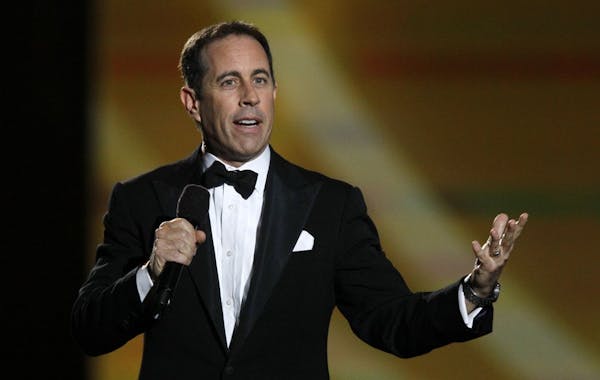Bargoers might not know the name, but Mike Whitelaw is notorious among servers, bartenders and bouncers in the Minneapolis club scene. He's known as a tough boss, prone to yelling at his employees, and an even tougher competitor. He doesn't talk to the press.
Last week, Whitelaw called me. I was stunned to hear his voice on the phone. In six years of reporting on the Twin Cities nightlife scene, I have never interviewed Whitelaw.
He owns Club New York, Fusion and the bars formerly known as Drink (Uptown and downtown). In 2004, he opened Spin, Minneapolis' first superclub. For a time, Whitelaw, 44, was one of the city's most successful club owners.
Business isn't what it used to be. The Uptown Drink filed for Chapter 11 bankruptcy in October. Spin closed in March. And Fusion is going through its second rebranding.
For a man whose businesses are in flux, Whitelaw sounded very confident on the phone.
"Nothing is going to happen to Drink," he said. "It's going to go through its reorganization and pay its bills and take care of its customers."
He could be right. Other big Minneapolis bars -- Seven and Aqua for two -- have gone through bankruptcy, reorganized and appear to be doing well.
The bankruptcy, Whitelaw said, isn't the result of slow business, but the product of a long and costly legal battle. In January 2010, six ex-servers and bartenders filed a class-action lawsuit against Whitelaw, Uptown Drink and Spin. The suit accused management of altering time-clock records, as well as slapping employees with the cost of unsigned credit-card receipts and register shortages.
In August, a jury awarded the class of employees (around 700 people) $15,668, far below the potential damages. Whitelaw said the small award was a win for his defense. But now he faces a mountain of legal fees, both his own (more than $250,000, he said) and the judge-ordered task of paying the plaintiffs' counsel costs ($684,697).
The plaintiffs' attorney, Steven Andrew Smith, said he doubts legal fees are the only financial hurdle afflicting Uptown Drink.
"Certainly, bankruptcy is a potential option for avoiding financial obligations, but some things can't be discharged in bankruptcy," Smith said. "I think this is just the beginning of the story."
A Kardashian walks into a bar
As the E! cameras rolled, Kim Kardashian partied with then-husband Kris Humphries on Labor Day weekend at the Uptown Drink. The celebrity sighting was nothing new for Whitelaw.
When Spin opened in 2004, it helped usher in a new era of VIP partying in the Twin Cities. The dance club was a favorite of pro athletes and celebrity hosts like Lauren Conrad and P. Diddy. Unlike rival club owners, Whitelaw has never enjoyed the spotlight, which makes him somewhat of an enigma. He doesn't dress the part of glitzy club mogul. Former employees said he would often wear a baseball cap, old jeans and a T-shirt while operating his businesses.
But he makes his presence known. Behind the scenes, Whitelaw demanded perfection, even if it ruffled his employees. Any misstep in lighting or music could incite his wrath.
"Whether you like him or not, Mike is an incredibly smart businessman and he understands this industry," said Ben Quam, a former employee. "But I don't understand how you get anything done by screaming at people."
'The toughest time'
Whitelaw might be a tough boss, but the jury's verdict in the class-action lawsuit did not deliver a sweeping denouncement of his payment practices. The jury found that Whitelaw violated minimum-wage provisions under the Minnesota Fair Labor Standards Act. But it also "found no unlawful deduction violations," meaning it wasn't proven that Whitelaw made his employees eat the cost of register shortages and unsigned receipts.
Whitelaw's record-keeping was called into question. The court cited destroyed records and a lack of cooperation. In the court's final ruling, Judge Kerry Meyer wrote, "The number and types of record-keeping violations were significant and hindered the jury from determining the specific amount of the minimum-wage violations." Whitelaw said the plaintiffs' award (which rose to $65,994 after liquidation and state penalties) was vindication enough.
With the trial over, Whitelaw now turns to the bankruptcy. Uptown Drink's largest creditor is a Minnetonka company called Plaza I, Inc., which is owed more than $339,052. The debt is secured by a lien on Drink's assets, valued at $329,485.
After our brief phone interview last week, Whitelaw agreed to meet in person. He postponed once and then did not return phone calls.
His sister did, however. Michelle Whitelaw wears many hats in her brother's company. She is his marketing director, part-time operator and worked on the lawsuit's defense.
"This has been the toughest time for Mike," she said. "There were a lot of sleepless nights."
But the party doesn't stop. Whitelaw is in the midst of renaming and possibly remodeling his two Drink locations. And this week, his other Uptown bar, Fusion, was scheduled to reopen as Social House. Whitelaw wants to give it a "new look and a new buzz," he said.
A big party is planned for December.
- Follow Horgen on Twitter: @tomhorgen
Review: 'Dust Child,' by Nguyễn Phan Quế Mai

Trump, Minneapolis Mayor Jacob Frey clash on Twitter


